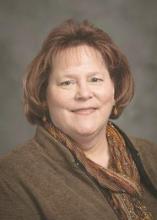We often hear parents express concern that misuse of technology may be harming their children’s communication health. Despite this concern, significant numbers of parents are handing off smart phones to children as young as age 2 years and are allowing considerable use of technology at the dinner table, sacrificing what should be a prime time to provide the human interaction so vital to their children’s development of strong communication skills.
These are some of the leading findings from a national survey of parents of children aged 0-8 years that the American Speech-Language-Hearing Association (ASHA) commissioned for release during Better Hearing and Speech Month May 2015.
Is technology bad? Are smart phones, tablets, MP3 players, and other devices overtaking and quite possibly harming young children? Not exactly. The devices themselves aren’t the problem, the problem is how they are used. Our survey showed that very young children are using devices such as tablets and smart phones – and that, unfortunately, parents are often not heeding pediatrician screen time recommendations. According to survey respondents, a majority of 2-year-olds use a tablet. The survey also suggests that as children grow older, they prefer to spend more time with technology, where they are free to stare at screens or blast music into ear buds as they wish – potentially damaging their hearing and losing out on important human interaction.
While children are developing their vocabulary and communication skills, it is vital that they not be preoccupied by activities involving use of tablets, smart phones, and other personal technology. This is especially the case for young children, who experience the vast majority of their brain development in their first few years of life. We know that early verbal communication is a strong predictor of a child’s future reading ability and overall academic success. It is critical that we make parents aware of the convincing benefits of reducing screen time and increasing time spent talking, reading, and interacting verbally with children.
We applaud you addressing this subject via the American Academy of Pediatrics’ literacy toolkit and other avenues for reducing screen time (Pediatrics 2013;132:958-61).Unfortunately, according to our poll, well-meaning parents haven’t completely gotten the message – and many rely on technology for a variety of purposes. About half of them say they use technology to keep kids aged 0-3 years entertained, and many report using it to prevent behavior problems and tantrums.
Let’s join forces in raising awareness about the importance of communication health and how parents can foster it through simple, free steps like regularly engaging their kids in conversation, talking to them about the importance of keeping volume levels down, and modeling safe listening behavior themselves.
The need for action is great. A study in Pediatrics reported significant increases between 2001-2002 and 2010-2011 in disabilities associated with speech and hearing among U.S. children (Pediatrics 2014;134:530-8).
Unlike most other conditions, many communication disorders are reversible or even preventable with early treatment. Parents may delay an assessment by a speech-language pathologist or audiologist in hopes that a child will “outgrow” a problem, or they may not recognize potentially problematic signs. We want to see kids before age 3 years if the early signs are there, when it is more likely they will qualify for early intervention services. Early intervention often results in a shorter, more effective, and less expensive course of treatment for these disorders. Ideally, early intervention will assure that any issue will be resolved or significantly improved by the time a child enters school.
ASHA has a current campaign, Identify the Signs (IdentifytheSigns.org), which offers resources about identifying communication disorders for parents and professionals alike. We invite you and your patients to use these materials to help assure that children receive early intervention for communication disorders. We look forward to working together for the communication health of children.
Dr. Page is director of the division of communication sciences and disorders at the University of Kentucky, Lexington, and 2015 ASHA President. E-mail her at pdnews@frontlinemedcom.com.


